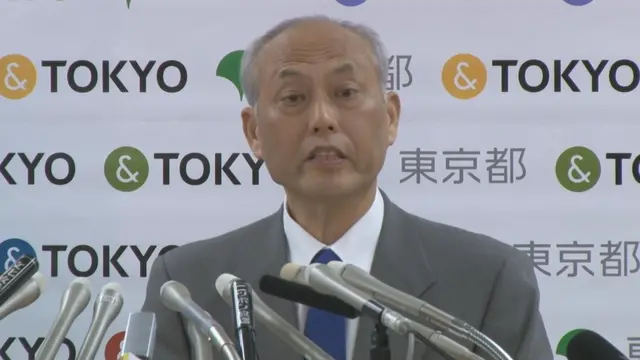Tokyo Governor Yoichi Masuzoe on Wednesday submitted a letter of resignation to the president of the Tokyo assembly and will step down from his post for his involvement in a funds scandal, the subsequent probe into which Masuzoe was unable to sufficiently account for with the assembly set to pass a no-confidence motion against him later in the day.
The embattled 67-year-old governor is accused of misusing political funds on numerous occasions for his own personal purposes, in violation of Japan's political funds law and in a blow to Japanese politics and Prime Minister Shinzo Abe who has lost four of his own ministers to high-profile scandals since retaking office in December 2012, with Masuzoe's case further highlighting an inherent culture of fraudulent political funds use and bribery endemic for decades in Japanese politics.
On Monday, Masuzoe was grilled by the assembly over his misappropriation of funds and was found to provide insufficient clarification on his spending and in some cases refused to elaborate and provide adequate details when being examined.
The departure of Masuzoe, following his predecessor Naoki Inose also stepping down for a money scandal, has reignited fierce debate about money and politics in Japan, with such instances of graft, misappropriation of political funds, corruption and bribery involving political figures, rarely being out of the headlines here.
Masuzoe himself had previously apologized to the public for his involvement in the scandal stating he intended to carry on in his position and restore the public's faith in him, but an irate public as well as both ruling and opposition camps have been gunning for Masuzoe to step down, despite the upcoming Rio de Janeiro Olympics in August and the almost certain negative impact his resignation will have on the 2020 Tokyo Olympics.
Seven assembly groups, however, which include the ruling Liberal Democratic Party and its Komeito ally, have jointly agreed to submit the no-confidence motion to the plenary session on Wednesday, despite the potential fallout.
The ongoing funds scandal involved Masuzoe using around 450,000 yen (4,239 U.S. dollars) from his now defunct political funds body to pay for accommodation and dining expenses for a trip he made with his family to a luxury hotel in the New Year holiday season.
He has also been accused of taking multiple trips overseas since he became governor in 2014, to the tune of 200 million yen (1.88 million U.S. dollars), and has faced accusations of commandeering government vehicles for his own use to visit his villa at a hot spring resort just outside Tokyo as many as 50 times, all at the taxpayer's cost.
Allegations levied against Masuzoe, who is known for his lavish lifestyle, also claim he improperly used funds to purchase expensive art, books and clothing, causing further indignation from taxpayers here.
The fourth minister of Abe's to quit was former Economy and Fiscal Policy Minister Akira Amari who was forced to step down in January for his involvement in a bribery scandal involving him providing special political favors to a construction company in return for free entertainment, gifts and millions of yen in cash.
Amari had brokered Japan's involvement in the Trans-Pacific Partnership (TPP) in his concurrent role as Economic Revitalization Minister in charge of the Trans-Pacific Partnership.
While Masuzoe himself is not a minister, the frequency of money scandals involving government officials paints a negative image of politics in Japan and the public's indignation at the latest scandal will almost certainly have a bearing on this summer's upper house elections and may play well into the hands of a recently united opposition camp.
The opposition camp are are gearing up to try and oust the ruling bloc and the prime minister for his economic policy incompetence and to thwart the leader's plans to fully remilitarize the nation by way of a controversial amendment to the pacifist constitution following a possible referendum on the matter.
(APD)
 简体中文
简体中文

